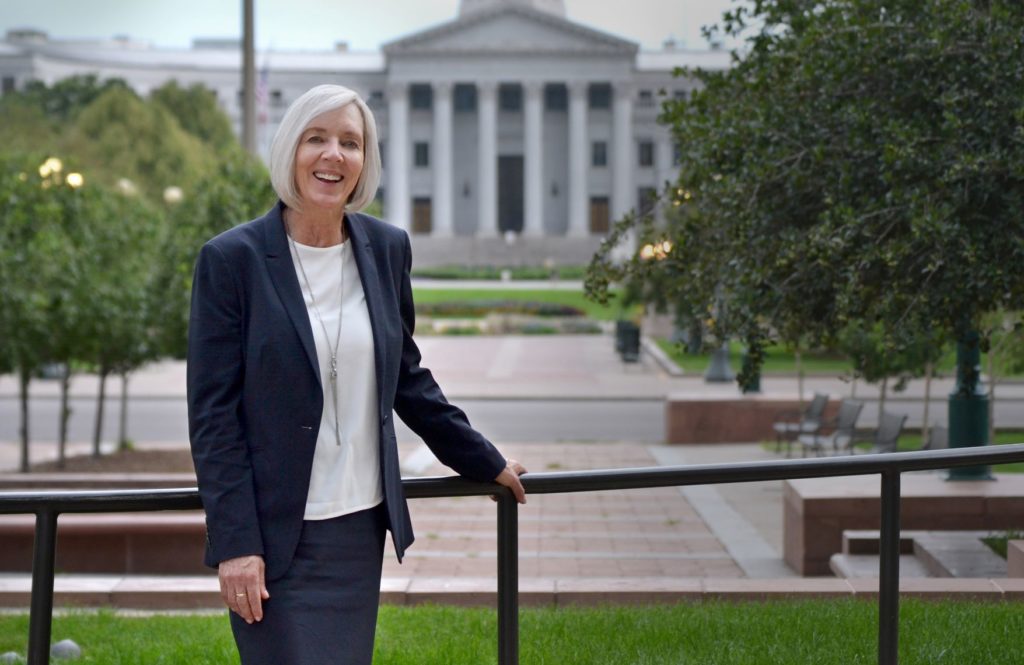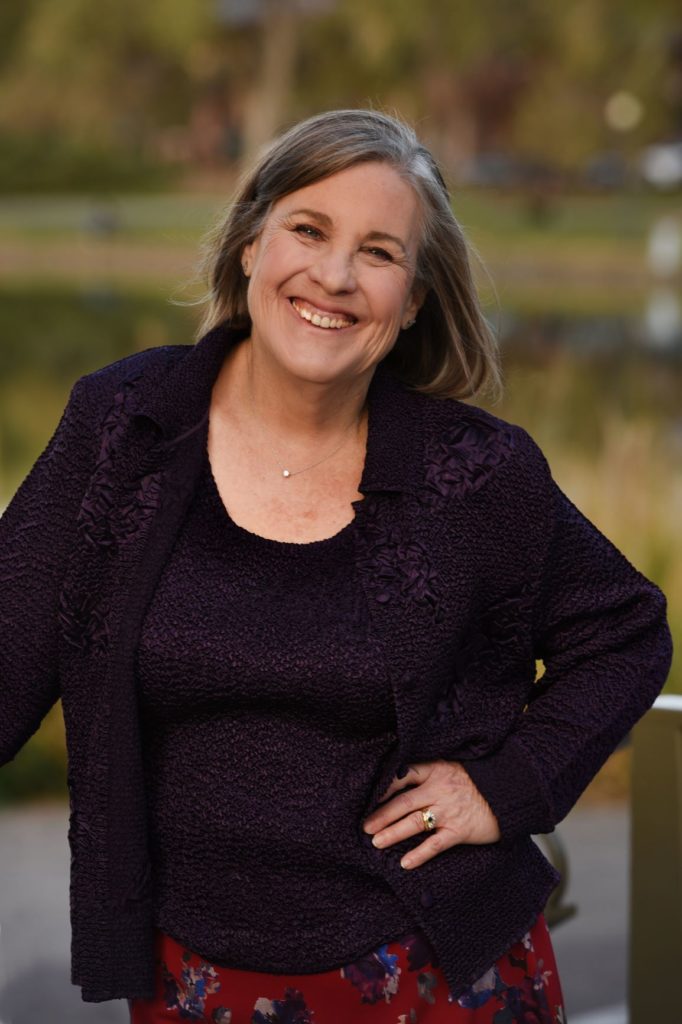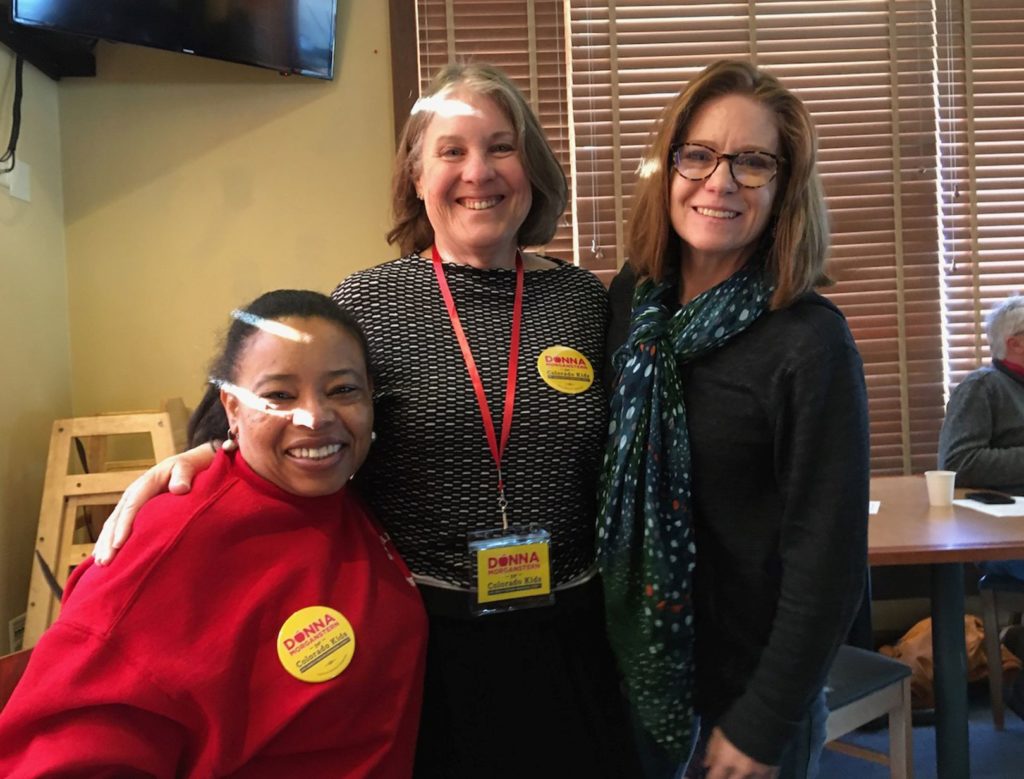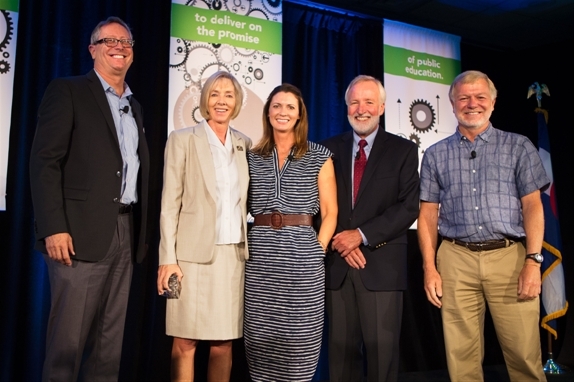The Colorado State Board of Education (SBoE) elections normally draw little media attention, despite its important role in public education in Colorado. Given Denver’s political leanings, the new representative on the SBoE may ostensibly be decided in the June Democratic Primary.
The State Board is composed of seven members, one elected from each congressional district, and board members serve without pay for six-year terms. Only Democrats have a primary this year. The Denver North Star will be reaching out to Republican and third party candidates this fall before the November election.
The SBoE oversees the Colorado Department of Education (CDE), approves rules that govern public education pre-kindergarten through 12th grade, and regulates educator licensing for over 55,000 teachers in Colorado. The SBoE can also approve new charter schools, overriding local district school boards.
The COVID-19 pandemic has dramatically changed K-12 education in a matter of months. Colorado lawmakers are currently planning for a 2020-2021 budget deficit of $3 billion, or a 10% reduction from the budget that Gov. Jared Polis recommended last November. Denver Public School officials recently predicted the district could lose from $19 million to $61 million in state funding next fall.
State rules and regulations, overseen by the Colorado Department of Education, frequently lack provisions for students to be taught remotely. The State Board will have to review and amend these regulations to allow for extended remote learning or modified school days where students spend only part of a normal school week in the school facility.
The 1st congressional district is currently represented by Democrat Dr. Valentina “Val” Flores, who won election in 2015. Six years ago, Flores won the primary in a surprise upset against a well-funded opponent. In another surprise upset, Flores fell short of the votes needed in the 2020 CD1 Democratic Assembly to make the June Primary ballot.
Dr. Lisa Escárcega, the soon to be retired Executive Director of the Colorado Association of School Executives, and Donna Morganstern, a retired data analyst and accountability manager with the CDE, are both on the June Democratic primary ballot.
We spoke with both candidates to discuss how they would represent North Denver if elected to the State Board of Education.
COVID-19 and the impact on school schedules next fall
Based on guidance from the CDE, schools face a serious planning challenge for the coming school year, and need three different plans depending whether a school has a COVID-19 outbreak:
Plan A: Traditional In-Person Learning
Plan B: Hybrid In-Person and Remote Learning
Plan C: Remote Learning Only
For DPS, Plan A is the preferred option, but Plans B or C could be required at any time and schools may go back and forth between plans during the year.

(photos courtesy of the candidates)
Lisa Escárcega supports school districts following the CDE recommendations that best suit their individual students’ needs. Escárcega suggests that the CDE can “continue to work with other states and the CDC to put out the best recommendations possible, look for any existing and future funding streams that could be used to support schools opening this fall and beyond, and review rules for potential waivers on requirements such as educator effectiveness and testing – anything that could allow schools to focus on re-entering students back into school this fall.”

Donna Morganstern likes the idea of half of the students attending Monday and Tuesday, the other half Wednesday and Thursday, and prefers that Fridays be devoted to in-school work with students with disabilities and English-language learners (ELL). Morganstern believes that the benefit of this modified schedule will be smaller class size, but she is concerned that it is unrealistic to keep children in the same classroom all day long. With teachers working in schools with half of the students each day, Morganstern assumes the remaining students will do remote learning, which means additional teachers and staff may be needed to work with the online students. “I agree that parents will have to make their own decisions regarding whether they want their children to continue remote learning, or move to in-person learning once that is possible,” said Morganstern.
State Budget Cuts hit K-12 Hard
School districts will be dealing with an even greater crisis in funding. School districts are planning on a 15% cut in the portion of funding that comes from the State.
Morganstern acknowledges that the budget issues are incredibly tough, and the CDE is limited in what it can do to help. CDE is subject to state law and has minimal authority to change the requirements placed on school districts. Morganstern believes this is the time for the Legislature, the SBoE, and CDE to work together to maximize funds for classroom instruction and fair wages for teachers and other school staff. “We must come together to take care of the basics before we do anything that is not absolutely necessary,” said Morganstern.
Escárcega didn’t directly address the specific cuts but did talk about working with Fair Tax Colorado on a ballot initiative that would increase revenue for K-12 and other areas such as transportation. Escárcega believes a progressive tiered tax structure plus a change to the Gallagher Amendment (which enforces a ratio between the residential and commercial property tax revenue, the net effect being a decline in revenues collected from property tax) is our best chance at limiting the K-12 budget shortfall that will be worse in 2021-22. Escárcega said, “as a state board member I will advocate for no new unfunded mandates and the elimination of current unfunded mandates such as educator effectiveness (SB191). I will also be reviewing the increased staffing that has occured with the CDE over the past decade and not support any additional personnel requests.”
The Candidates Talk about Their Campaigns
Escárcega has earned high profile endorsements including the Colorado Education Association (CEA is the statewide teachers’ union) and the Colorado Working Families Party, a progressive labor-aligned advocacy organizatoin. Her campaign has raised the most in-state money and has the largest number of donors in this race. She believes that her number of volunteers and fundraising ability gives her campaign a strong path to victory.

Morganstern said, “I decided to run for office because I was so tired of watching the same people move from position to position…and nothing ever changed. I was also very frustrated watching State Board members grappling with issues, policies, and data they didn’t understand fully and make decisions based on that partial understanding.” She is confident that her past experience working with data analysis at CDE makes her better able to understand and utilize the data as a member of the SBoE.
Morganstern is her campaign’s largest donor. Morganstern said, “I have been very fortunate in many aspects of my life and am in a position to do something to serve the greater good, not my personal benefit. Serving on the State Board of Education is where I can make the greatest contribution.” Candidates self-funding their campaigns do not always carry the stigma it once had, as evidenced by Governor Jared Polis and, more locally, Southeast Denver school board member Scott Baldermann, both of whom heavily financed their own campaigns.

Escárcega was previously the director of the Colorado Association of School Executives, an advocacy group for principals and district administrators. Regarding the apparent tension between the Association she’s leaving and her current endorsement from the teachers’ union, Escárcega said, “I have been navigating ‘tensions’ between various groups. Whether it’s between school boards and administrations, administrations and teachers, or legislators and advocacy groups, this is how I have earned the respect of so many. I do it by showing up, listening and being respectful to all views and never compromising on my values which includes putting students first.”
Primary Election Voting Information
Primary ballots were mailed starting June 8.
- Democrats and Republicans receive ballots for their respective parties.
- Unaffiliated voters receive both and can return one.
- June 15: Elections office (downtown) opens as a vote center.
- June 22: Other vote centers open across the city.
- June 22: Last day to update your registration to receive a ballot by mail.
- June 22: Last day to return your ballot by mail. After this day, the Clerk’s office. recommends returning ballots via drop-boxes only to ensure delivery.
- June 29: Additional vote centers open across the city.
- June 30: Last day to vote — Ballots must be received by 7pm.
For more information, please visit www.denvervotes.org/voterinfo or call 311.
24 hour drop off locations in North Denver
- Denver Police Department District 1 1311 W 46th Ave
- Highland Recreation Center 2880 N Osceola St
- Rodolfo “Corky” Gonzales Branch Library 1498 N Irving St
- Scheitler Recreation Center 5031 W 46th Ave

Be the first to comment